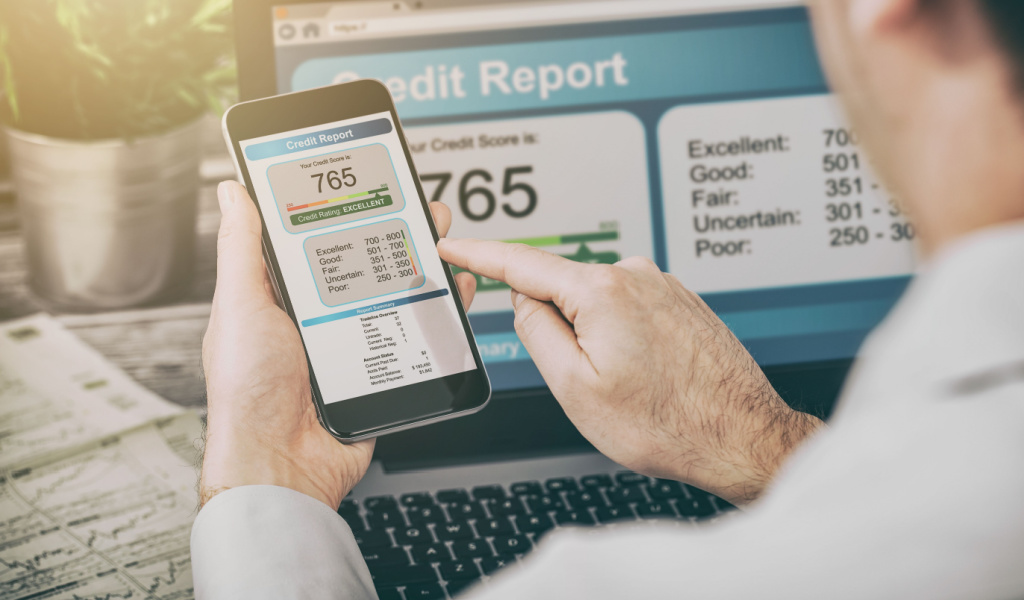You might be unaware of the importance of checking your credit score regularly. Undoubtedly, your credit score can affect your financial destiny, whether it concerns purchasing a mobile phone on EMI or getting a home loan. You can easily make your own decisions if you thoroughly understand your credit history and how it affects your borrowing capacity. Your credit score is a measure of how credit-worthy you are. Lenders, banks, and credit card firms examine your credit score before deciding whether to approve or reject your application.
Since soft credit searches do not negatively affect your credit history, you can always request one to get a brief overview of your financial behavior. If there is a decrease in your credit score, you can detect the causes and promptly recover it. Similarly, when your credit score rises, you can analyze it to figure out ways to keep it favorable in the future. Without a doubt, everyone benefits from this scenario.

You may be wondering if checking your credit report often is actually advantageous. Well, we can help you clear your concerns. Let us walk you through it. Here are the reasons why it’s essential to check your credit score regularly:
Helps Maintain Accuracy
Your credit score is a three-digit figure calculated by culminating all the payment track records for all the different credit services you have used throughout the years. Even so, your credit report may contain a few errors. Unfortunately, any mistake in your credit record can negatively affect your credit score. To ensure that everything on your report is in its proper place, you need to verify your credit score regularly. In case of any errors, you must inform the credit bureaus to get them fixed immediately.
Aids in Improving Credit Score
Most of us often believe that when we make on-time payments on our credit cards, there’s no need to check our credit score regularly. This is a wrong assumption since your credit score could be affected by various elements, even when you are punctual with repayments.
It is also essential to have a low credit utilization ratio. You could improve your credit score by upholding a credit utilization ratio of 30% or below. If you wish to maintain a high score, watch your credit report and take proactive steps if necessary.
Makes a Favorable Impression on Employers
Before deciding on whether or not to hire you, some employers will check your credit score. Future employers will seek your permission before they examine your credit record. You are more likely to land the job with a strong credit score since it shows your capability to handle your financial affairs well.
Helps You Get the Best Deals
Remember that interest rates are inversely correlated with your credit score, i.e., interest rates decrease as your credit score increases. A high credit score assures lenders of your reliability. As a result, if you have a high credit score, the interest rates on mortgages, personal loans, and vehicle loans will be much lower. On the other hand, an unfavorable credit score may give you a higher interest rate. This is because lenders believe you have a higher chance of defaulting on the loan. Credit cards work similarly; the credit limit set for you will depend on your credit score.
In addition, knowing your credit score can also help you determine if the loan or credit card offer you presently have is the best one or if you should consider alternatives that provide better deals.

Helps the Approval Process
Your loan or credit card application will likely be approved if you have an acceptable credit score. Lenders will check your credit score to determine your ability to return the loan on time or to determine that you might fail to pay. For that reason, continually monitoring your credit score will help you become more aware of your finances. Once you become mindful of your credit report, you can take the necessary steps to prevent your loan application from being denied.
Reduces the Risk of Identity Theft
Identity theft occurs when a fraud willfully uses your Personally Identifiable Information (PII) for financial transactions or to obtain economic benefits under your name. By checking your credit report periodically, you can identify any unusual inquiries or loans/credit cards illegally obtained in your name by stealing your identity. These issues can be immediately addressed by the authorities, financial institutions, and the bureau.
In addition, make sure to explain who or what they were meant for during self-attestation when handing copies of documents like ID proof, address proof, and income documents. This way, you can ensure they are only accessible to authorized people to prevent misuse.
Gives You Financial Control
Understanding your credit score is essential to securing a sound financial future. Do examine your credit report to understand the necessary actions you must take to improve it. Once you identify them, you can work towards addressing them to raise your credit score!



